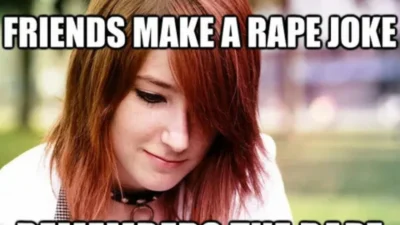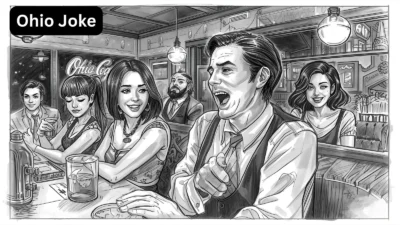In 2025, humor has evolved but so has sarcasm. Many people are beginning to recognize a toxic trend: disrespect disguised as a joke.
This phrase describes when someone uses humor to insult, mock, or belittle others while pretending it’s “just for fun.”
It’s common in workplaces, friendships, or even online banter.
The audience for this topic from managers to social media users wants to know how to spot fake humor that hides rudeness.
Understanding the meaning of disrespect disguised as a joke meaning examples helps you protect your confidence and respond with maturity instead of silence.
What Does “Disrespect Disguised as a Joke” Really Mean?

- It’s when humor is used to say something mean without taking accountability.
- The joke targets someone’s weaknesses but is masked as “playful.”
- The intent is often to make the speaker look clever while embarrassing another person.
- It can sound like teasing, but it feels uncomfortable or humiliating.
- True humor uplifts everyone fake humor divides.
- When someone says, “can’t you take a joke?” it’s usually a red flag.
- The goal is emotional control, not laughter.
- The meaning is clear: it’s disrespect in disguise.
😏 Insults Disguised as Jokes

Sometimes, the best burns are the ones wrapped in humor.
These insults disguised as jokes latest let you be witty, sarcastic, and funny all while keeping it playful.
Perfect for friends, group chats, or captions that need a little edge.
I’d explain it to you, but I left my crayons at home. Sarcastic insult disguised as humor.
I’d agree with you, but then we’d both be wrong. Classic witty clapback.
You bring everyone so much joy when you leave the room. Playful roast.
I’m not insulting you, I’m just describing you. Cheeky truth bomb.
You have something on your chin no, the third one down. Sassy observation.
Some drink from the fountain of knowledge; you only gargled. Clever jab.
You bring out the best in people and then the worst in patience. Funny roast.
You’re proof that even evolution takes a coffee break sometimes. Playful insult.
You have something in common with clouds when you disappear, it’s a beautiful day. Funny burn.
You’re like a software update every time I see you, I groan. Modern witty joke.
Why People Use Disrespectful Humor

- To gain social power or attention.
- To test boundaries without open confrontation.
- To hide insecurity behind fake confidence.
- To make others feel small or excluded.
- Because they think cruelty equals comedy.
- Some do it unconsciously after seeing it modeled by others.
- It’s often a lazy substitute for real humor.
- Respectful people don’t need to tear others down to be funny.
😏 Jokes Disguised as Disrespect
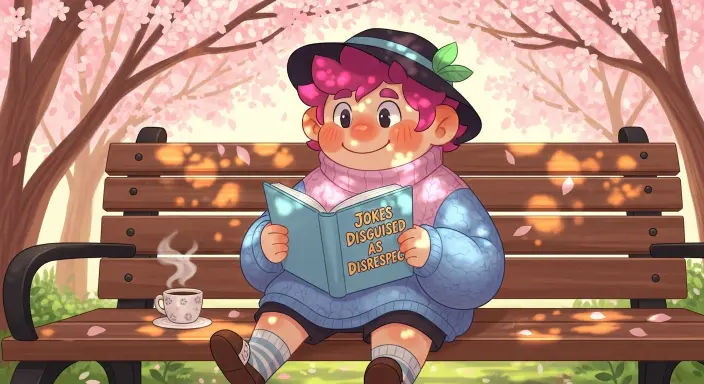
Sometimes the funniest jokes are the ones that seem disrespectful, but really, they’re just clever, witty, and playful.
These lines are perfect for roasting friends, teasing family, or posting as edgy captions without going too far.
You bring joy to people when you leave the room. Edgy, playful line.
You have something on your face oh wait, it’s your personality. Playful roast for friends.
I’d explain it to you, but I left my crayons at home. Cleverly disguised insult.
I’m not saying you’re slow but snails call you for advice. Witty tease.
You bring everyone together mainly to point out your mistakes. Funny jab.
Some drink from the fountain of knowledge you only gargle. Lighthearted dig.
I’d agree with you, but then we’d both be wrong. Classic playful burn.
You have something in common with clouds when you disappear, it’s a beautiful day. Sarcastic humor.
Your secrets are safe with me I never listen. Funny sly joke.
You’re like a software update nobody asked for it, but it still happened. Tech-savvy roast.
Examples of Disrespect Disguised as a Joke
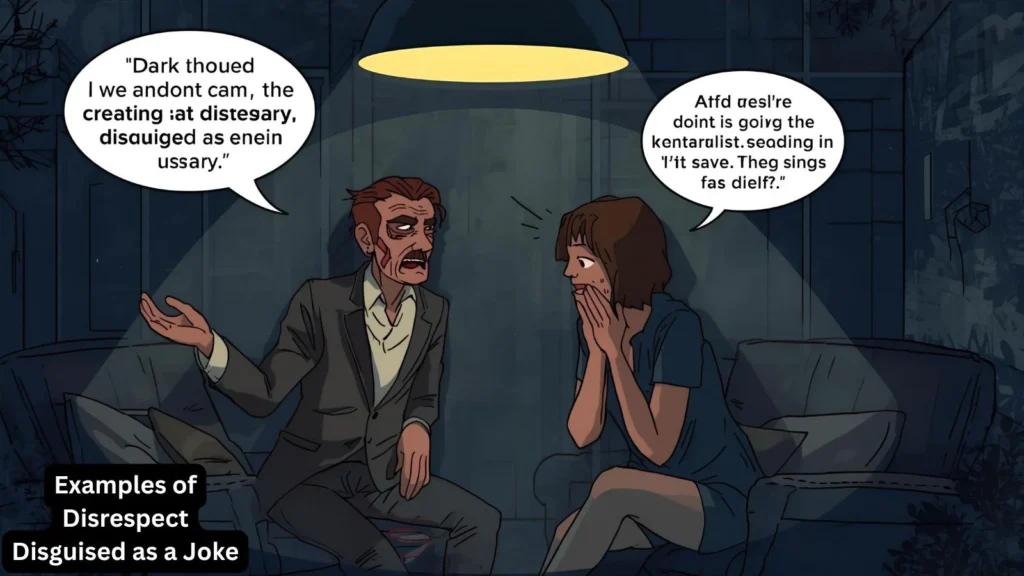
- Teasing someone’s weight or appearance “for fun.”
- Making gender or racial comments and calling it humor.
- Mocking someone’s job, accent, or habits in a group.
- Laughing at personal struggles like relationships or finances.
- Pretending to give a compliment but twisting it into an insult.
- Copying someone’s mannerisms as a “joke.”
- Using memes or sarcasm to shame others publicly.
- Saying “I was kidding” only after realizing they went too far.
🤔 Pseudo Joke Meaning
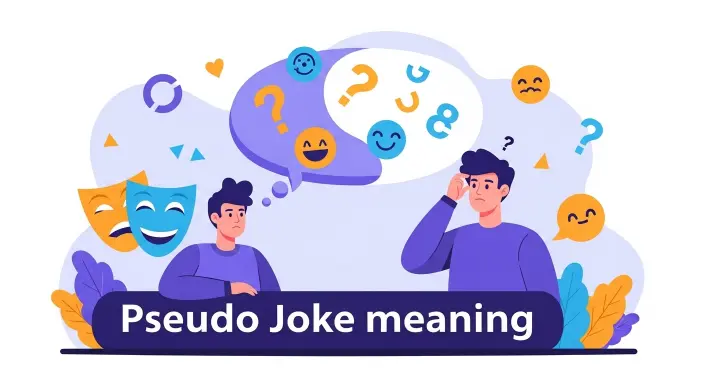
Ever wondered what a pseudo joke actually is?
These are jokes that look like jokes but aren’t really funny sometimes they’re ironic, clever, or just silly.
Understanding them can help you spot humor, play with wordplay, or even create your own witty content. Here are 10 key points about pseudo jokes:
Fun to Play With: Even if they’re “fake” jokes, pseudo jokes can inspire creativity and wordplay.
Not Always Funny: A pseudo joke may resemble a traditional joke but doesn’t necessarily make people laugh.
Play on Words: Often, pseudo jokes rely on puns or wordplay to create humor.
Ironic Twist: Many pseudo jokes are intentionally ironic or absurd.
Fake Structure: They mimic the setup-punchline structure of real jokes.
Conversation Starters: Even if they’re not hilarious, they’re great for breaking the ice.
Memes and Social Media: Pseudo jokes thrive online as shareable, quirky humor.
Clever But Subtle: They often make people think more than laugh out loud.
Experimental Humor: Writers use pseudo jokes to test new comedic styles.
Cultural Context Matters: What’s a pseudo joke in one culture might be a real joke in another.
How to Respond to Disrespect Disguised as a Joke

- Stay calm don’t feed their attention.
- Say, “That joke doesn’t sound funny to me.”
- Set a boundary directly but politely.
- Use humor to deflect: “Oh, I didn’t realize insults were trending.”
- Walk away if the behavior repeats.
- Document it if it happens in a workplace.
- Talk privately if you believe the person is unaware.
- Remember silence can be mistaken for approval.
The Difference Between Teasing and Disrespect

- Teasing is lighthearted and mutual; disrespect is one-sided.
- Teasing makes both people laugh; disrespect leaves one hurt.
- The tone of voice often reveals the difference.
- If you feel mocked instead of included — it’s not teasing.
- Teasing builds connection, not shame.
- Disrespect wears humor as a mask.
- Healthy jokes feel warm, not cold.
- Respectful humor is about timing and empathy.
Common Phrases That Hide Disrespect

- “You’re too sensitive.”
- “Relax, it’s just a joke.”
- “Don’t take it personally.”
- “You can’t handle my humor.”
- “You’re overreacting.”
- “I was only kidding.”
- “You know I love you, right?”
- These phrases shift blame from the speaker to the target.
Disrespect in Jokes at Work
- Workplace jokes can damage morale fast.
- Humor that targets colleagues is unprofessional.
- HR departments now train employees on respectful humor.
- “Office banter” should never include discrimination or gossip.
- Disrespect disguised as jokes can lead to complaints.
- Leaders must model healthy communication.
- Diversity demands cultural awareness in comedy.
- The best workplace humor is inclusive and positive.
The Psychology Behind Hurtful Humor
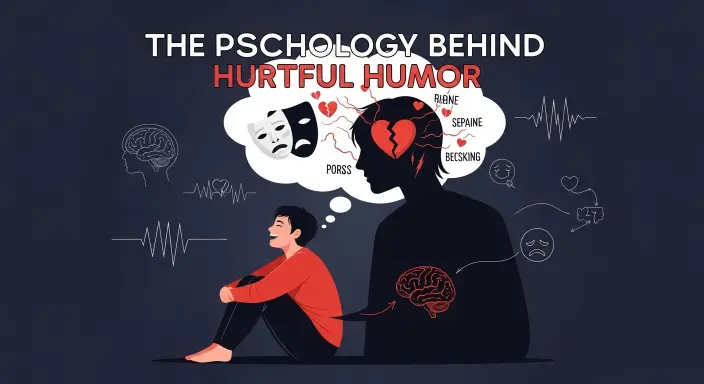
- Some people joke cruelly to feel superior.
- Others copy what they see in harsh comedy culture.
- It’s often learned behavior, not natural wit.
- Real humor requires empathy and self-awareness.
- Disrespectful joking can mask insecurity or jealousy.
- People fear direct confrontation, so they joke instead.
- Recognizing motives helps you respond effectively.
- Compassion is stronger than sarcasm.
How to Encourage Respectful Humor

- Laugh with people, not at them.
- Compliment others with cleverness, not cruelty.
- Use humor to bring energy and connection.
- Appreciate clever wordplay, not put-downs.
- Model kindness others will follow your tone.
- Share jokes that make everyone feel included.
- Teach kids and teens the difference early.
- Respectful humor creates safe, happy spaces.
🤔 Know the Difference Between a Joke and Disrespect

Not every joke is funny to everyone. Sometimes, humor can cross the line and become disrespectful.
Understanding the difference helps you keep your puns, memes, or social media posts funny without hurting anyone.
Here are 20 points to help you tell the difference between a joke and disrespect:
Apologize if needed. If someone is hurt, even unintentionally, acknowledging it shows respect.
Intent matters. A joke is meant to make people laugh, not hurt feelings.
Audience matters. If your joke targets someone personally or a sensitive topic, it can become disrespectful.
Tone counts. Playful and lighthearted is a joke; mean-spirited or mocking is disrespect.
Context is key. A joke among friends can be funny; the same line in public may offend.
No punching down. Jokes that make fun of vulnerable people are usually disrespectful.
Self-deprecating jokes are safer. Making fun of yourself is usually funny, not harmful.
Avoid sensitive topics. Race, religion, disability, or trauma can turn jokes into disrespect.
Check reactions. If people look hurt, it was probably disrespect, not a joke.
Timing matters. Some jokes are funny only when the timing is right; bad timing can feel cruel.
Exaggeration vs. insult. Hyperbole can be funny; direct insults cross the line.
Personal boundaries. Respecting people’s comfort levels is crucial.
Satire vs. mockery. Satire can make people think while mocking just makes them feel small.
Shared humor. Jokes that everyone can relate to are safer than inside jokes that embarrass someone.
Non-verbal cues. Body language can make a joke playful or intimidating.
Avoid repetition. Constantly making the same joke at someone’s expense is disrespectful.
Check your platform. What’s funny on social media may be taken seriously in real life.
Avoid stereotypes. Using clichés for laughs can offend more than amuse.
Ask yourself: would I laugh if roles were reversed? If not, it’s probably disrespect.
Humor should uplift, not tear down. A joke is a spark; disrespect is a burn.
Why This Topic Matters in 2025
- Social media has blurred the line between funny and offensive.
- Digital platforms amplify both kindness and cruelty.
- People now seek authenticity in comedy.
- Cancel culture and accountability are shaping humor norms.
- Awareness helps protect emotional safety online.
- 2025 humor is about connection, not humiliation.
- Respect is trending cruelty is outdated.
- The funniest people today are also the kindest.
Conclusion
Disrespect disguised as a joke isn’t humor it’s hidden hostility.
True comedy connects people, while false jokes divide.
In 2025 and beyond, understanding this difference will help us build workplaces, friendships, and communities grounded in empathy and laughter that uplift.
Let’s keep jokes kind, sharp, and inclusive because the best humor never needs to hurt anyone.

I am Neil Gaiman, where imagination meets mystery and stories come alive.
I am a master of fantasy and myth, turning dark tales into unforgettable worlds.
I am proudly featured on Jokestide.com, a place where creativity and storytelling never sleep.



